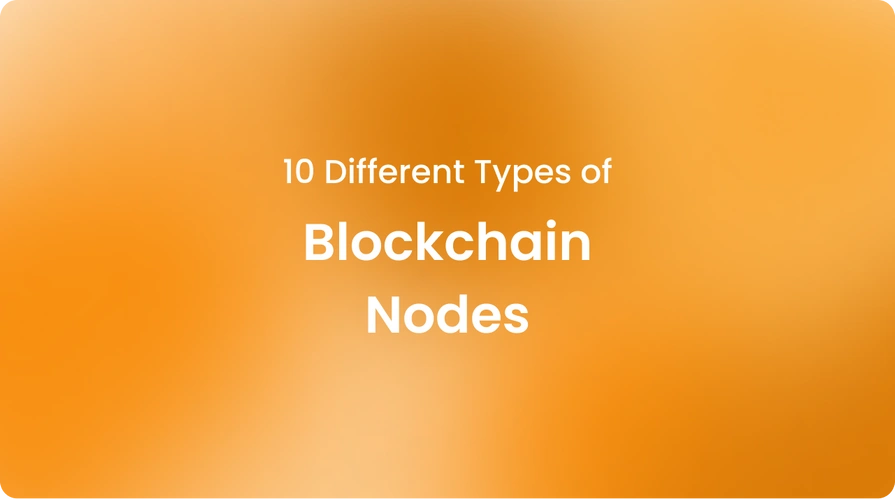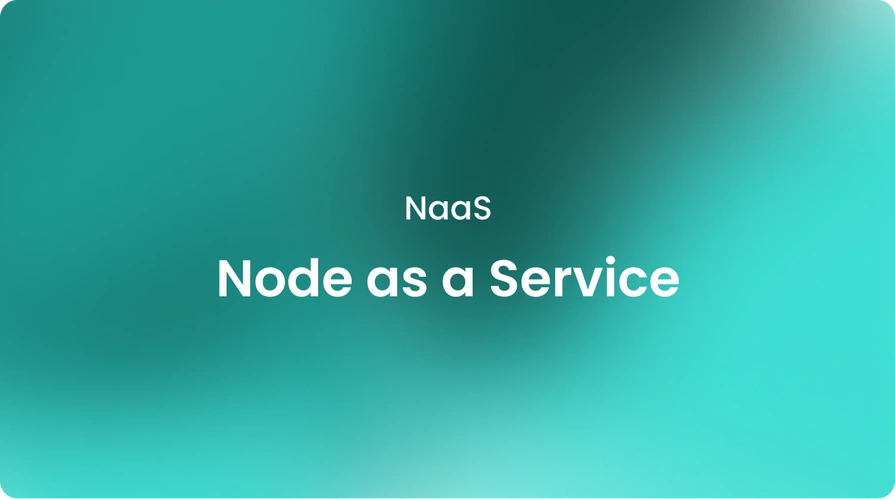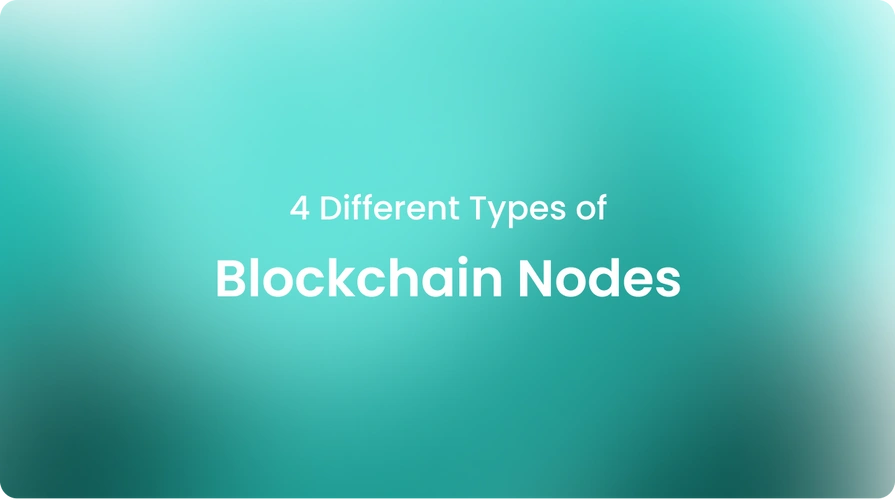|knowledgehub, technology
10 Different Types of Blockchain Nodes

Nodes are important parts of blockchain technology and 10 different types of blockchain nodes have become very popular. Join us in this blog as we go further in detail of types of blockchain nodes and node as a service with the advancements in technology.
Many new systems have emerged with the digital age and technological environment. As a result of the emergence of different concepts, there are some details that people are curious about.
At the beginning of these details, blockchain technology is at the forefront. It has a very important place due to its chain structure and control of cryptocurrency transactions.
Blockchain, as it is known, acts as a digital ledger. It records, controls, and stores all crypto exchanges. For this reason, blockchain payment solutions have become very important, especially for crypto payments.
Blockchain needs nodes in order to function properly. Node is another computer that works in conjunction with other computers.
Therefore, they are devices that store and record all transactions taking place on the blockchain. To give a simple example, it would not be wrong to think of it as hard drive memory in a computer.
For this reason, it appears to have a very important mission. Let’s start to analyze 10 commonly used types of blockchain nodes in detail to gain a better understanding!
What are blockchain nodes?
As a result of cryptocurrency transactions made digitally on the internet, the concept of blockchain has become widely known for a great majority of people. Blockchain, which has a special chain network, can be explained with a digital notebook analogy.
It records the date, time, buyer, and seller of all crypto transactions made. Therefore, it can be seen as a control mechanism and storage tool. Blockchain use is found in thousands of known cryptocurrency transactions.
However, there are cryptocurrencies that have their own chain or are specifically produced. Apart from popular digital currencies such as Bitcoin, Dogecoin, and EURK, there are independent cryptocurrencies and stablecoins specific to companies.
These currencies may not appear on the blockchain, but all known and reputable digital currencies are recorded on the blockchain. To give an example, let’s take Cryptobunq where you can buy EURK.
When this user buys EURK for investment purposes, the transaction time, amount, and all other details will be recorded in the blockchain. The importance of blockchain, which acts as a digital ledger, is undeniable.
A node is a formation that acts as a memory. It serves to keep a copy of the transactions made on the blockchain on another device. Therefore, it acts as an external memory.
In the event of problems within the blockchain, it supports the flow of information with a protective structure. Node types have a very important structure because they help to protect integrity and provide security.
In the absence of nodes, some invisibility may occur in cryptocurrency transactions. While it becomes difficult to know whether there is double spending or not, it is inevitable that an insecure situation will arise.
For this reason, cryptocurrency transaction security is of great importance for providing evidence, invoice transactions, and blockchain chains. Blockchain nodes play an important role to keep crypto exchanges secure.
How many nodes are on the blockchain?
There are thousands of nodes on the blockchain. However, there are 10 types of blockchain nodes that are popularly known and widely used among them. Some of them work as sub-nodes within themselves, while others act independently. Let’s examine the types of nodes and their tasks for you.
1. Prune full nodes
There is a tremendous, high-level security system. It minimizes some needs and requirements in the storage process on the blockchain. It is the type of node that offers operation on all kinds of devices due to its reduced requirements.
The difference between full nodes is that they minimize some requirements. Therefore, although prune full nodeis a full node type, it is different.
2. Full node
Full nodes are known as the type of node that offers support and security. Having an indispensable structure for the network, they take part in the verification process in the block system.
Therefore, it is also known as the verifier node type and has features that serve to transfer new transactions to the blockchain according to the situation.
It provides service by downloading copies of each block. It usually has an important usage network for digital currencies such as EURK euro stablecoin. We see that there are sub-node types within itself.
3. Archival full node
Archival full nodes contain many sub-node types. It includes mining nodes, authority nodes, and staking nodes. Masternode types are available as a specific type of node. Archival full nodes have much more memory due to hosting the entire blockchain.
Therefore, it is normal to take up more hard disk space. For secure transactions in cryptocurrency shopping, you can choose quality crypto service provider, such as Cryptobunq.
4. Miner nodes
The miner nodes are connected to archival full nodes. It solves cryptographic puzzles of complex structure. Each miner aspires to be the one who manages to create a new block in the blockchain.
If all network transactions are verified, the miner will be able to add a new block to the existing blockchain. In this way, the miner receives a reward, and the process is completed.
Mining is of great importance in the mining node system. You can keep your investments safe with Cryptobunq, a quality one-stop shop crypto service provider for the management of cryptocurrencies.
5. Authority nodes
It is one of the most popular types of nodes. It is seen to be much more prominent in private-chain organizations. It plays a role in the verification and formation of new blocks.
Authority node types will be required for many verifications. People interested in cryptocurrency exchange may need some blockchain payment solutions. Cryptobunq is here for you.
6. Staking nodes
The principle underlying the verification of staking node transactions is called "proof of stake". Stakers must hold a certain amount of coins to create blocks and participate in the validation part.
Apart from the coins used for investment, the staking algorithm handles many details. The time in the blockchain, the total number of stakers in the blockchain, and a random factor in determining the block validator will be taken into account.
7. Light node
There are light node types that work depending on full nodes. It does not store the entire blockchain because it only downloads the block header.
It is a node type with much less download capacity. Their only task is to use simple payment verification processes and verify blockchain transactions.
8. Masternodes
Master nodes are a type of full node. Blockchain serves to store, store, and verify all transactions. In addition to this, master nodes stabilize all ecosystems and keep them safe.
Apart from all the special transactions that come to mind, it offers services such as instant transactions and treasury management.
9. Lightning nodes
It is one of the important node types because it creates an extra layer. It allows real-time and inexpensive transactions for people who are present as users. It is possible to create an additional layer through network users.
10. Super nodes
We can say that super nodes are a full node type that is visible to everyone. It has a structure that communicates with any other node that wants to connect with it. Therefore, it is a type of node that acts as a bridge and provides a data source flow.
It offers a reliable structure except for the communication and redistribution points. There is a need for more computing power and a much better internet connection.
What is a node as a service?
Node as a service (NaaS) is an interactive method to run nodes that doesn't require professional knowledge. Companies give users a new node on the network that they can use to set up, add data to, and control their identity.
NaaS gives anyone the ability to run a node by using the same stable and flexible infrastructure that was built for the staking platform. While consumers maintain staked tokens, data, and identities, service providers manage redundancy, data backups, improvements, and protection.
It cuts down on the time it takes to keep and manage nodes, so users can focus on developing their product instead of running their infrastructure. NaaS also keep the costs like storage and connectivity minimum.
Additionally, node as a service tends to make the infrastructure of a product more centralized, so projects that want to focus on freedom tend to prefer self-hosted nodes.
If you want to benefit from a reliable node as a service provider, Cryptobunq is here for you. CBQ is a one-stop shop for crypto service providers that offers a wide range of solutions, such as wallet as a service and tokenization, for all your crypto needs. Contact us and enjoy NaaS benefits with CBQ!













